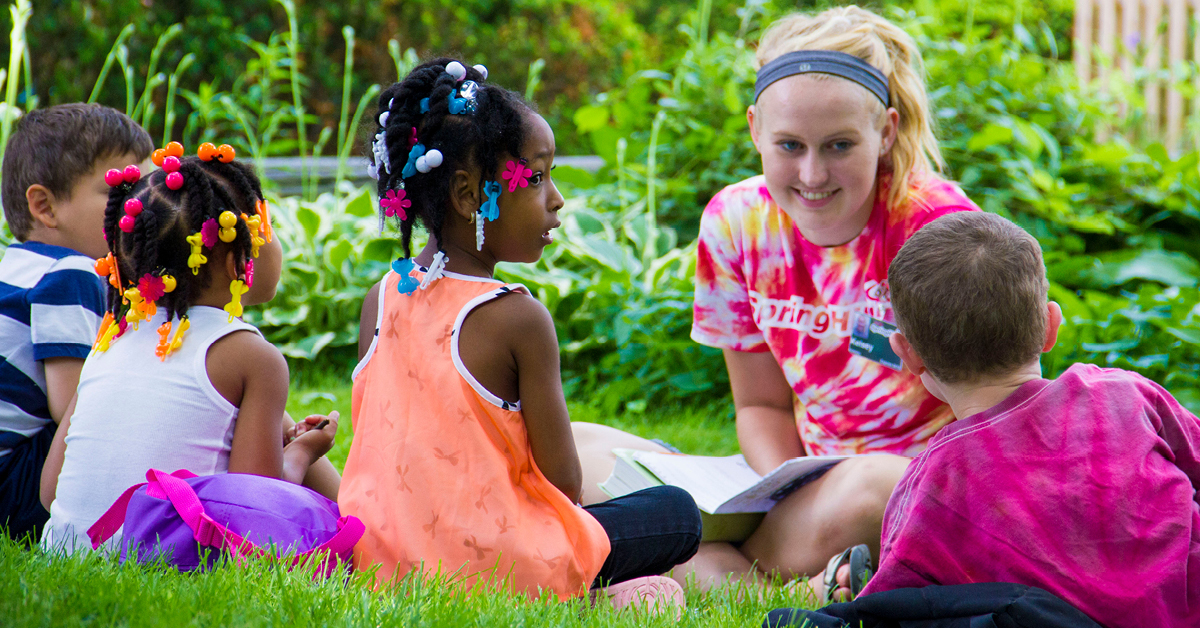Christ gave us all the ultimate gift – the gift of sacrifice manifested through his life’s ministry and ending in his crucifixion and atonement for all people from all time. His devotion to us can be seen in everything he did, every lesson he taught, and every soul he healed.
That is our goal at SpringHill, to continue the work of Christ’s mission. Doing so requires a lot of work, love and commitment from everyone involved; but the results in transformed lives – thousands of lives. Last year, when our summer ended, we said goodbye to replace with over 25,000 children and teens and nearly 1,000 young adult leaders in over 135 SpringHill locations throughout eight states. Yes, at SpringHill, we pack 80 percent of our direct missional work into four months.
From the middle of May until the final SpringHill Experience is finished in the middle of August, I feel as though I’m shouldering a great weight: the responsibility for the lives of all these people. I can only imagine the weight Christ bore for all people.
And while this weight is great, the leadership responsibility provides some of the greatest inspiration and energy only comes through sacrifice and working with such an amazing, embracing, talented, committed, and diverse SpringHill community. Our professional staff work hard for the eight months leading up to camp to ensure a successful summer. They then serve tirelessly almost every day, all day, for four straight months. They work alongside our summer leaders, who give up their summer to serve kids unselfishly, with great love, energy, and passion, and alongside our volunteers, ambassadors, and supporters, who host, paint, drive trams, serve in our medical centers, provide meals, garden, and work in the offices, helping us create SpringHill Experiences.
In this work we get a glimpse of the love and care Christ must have for us. We are continually reminded of the great worth of those we minister to and have the privilege of serving. We’re all working together to create a life transformation, The SpringHill Experience, The SpringHill Way.
And in the end, that’s our desire: our plans will be God’s plans because we want the results and the glory to be all His. At the end of the day, it’s all about what we call, FTK. No, the letters FTK are not a secret code, and yes, they have meaning, a serious meaning. As a matter of fact, these letters stand for two significant but related purposes that highlight why over 1,000 summer and year-round SpringHill leaders run the sprint we call summer camp. It’s why they work uncountable hours, at times in uncomfortable weather and conditions, and often endure heartache and disappointment. It’s why they experience the joy of loving, serving, teaching, coaching, and leading nearly 26,000 children and students. FTK moves these leaders to do all they can to assure campers have the best week of their year and the most transformative experience of their life.
FTK is also why thousands of supporters, ambassadors, prayer partners, volunteers, churches, and families invest in the work SpringHill does every summer. It’s what drives the SpringHill family, every day, to be more creative in their work, and more effective in serving more kids, families, and churches in more places.
FTK is how we ultimately evaluate the work we do in the summer. It is SpringHill’s plumb line. It’s what moves us, inspires us, sustains us, and brought all of us together this summer. And it’s why, for the past twenty summers, I’ve devoted my vocational life serving SpringHill’s mission.
The words behind FTK are significant, yet quite straightforward. And as soon as you read them, you’ll understand why they are the guiding force of our work. FTK means “For the Kids and “For the Kingdom.” There’s no better cause, no more important work, no better way to spend a summer than serving and sacrificing for His kids and His Kingdom.









